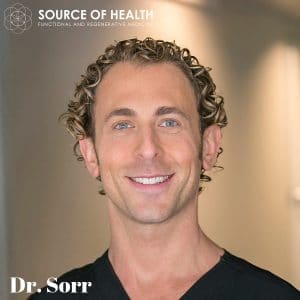We’ve all been told to eat your veggies while growing up. And now that we are all grown up, the message still continues, even stronger than ever. Not all vegetables are created equal. Recent studies have shown there are certain vegetables that contain powerful plant medicine that can prevent and reverse certain cancers, neurodegenerative diseases, hormonal dysfunction, metabolic syndrome, oxidative stress, and chronic inflammation.
The Brassica family aka cruciferous vegetables (including broccoli, cabbage, cauliflower, kale, rapini, Brussel sprouts, and kohlrabi) have been studied in research heavily for their incredible health benefits. Brassicas have a unique class of compounds namely Glucosinolates: DIM (3,3’-Diindolylmethane), I3C (indole-3-carbinol), sulphorophanes and glucoraphanins. These substances possess numerous therapeutic capabilities for the human body.
Antioxidant
Sulphoraphanes work by stimulating NRF-2, part of our cells’ intrinsic antioxidant pathways. This pathway when unlocked has the power to quench free radicals and eliminate the oxidative stress on the system which is the underlying mechanism of most chronic inflammatory diseases including heart disease and cancer.
Metabolism
In addition, sulphoraphanes aid the body’s metabolism and utilization of glucose, lipids and even convert white fat into brown fat, which burns more calories at rest; excellent for metabolic syndrome and obese patients.
Cardioprotective
Patients who have a cardiac disease with left ventricular hypertrophy have seen promising benefits. DIM protected against cardiac oxidative stress by regulating expression of estrogen-related receptor-alpha (ERRα) and NRF2 etc. DIM significantly improves left ventricular function via the activation of AMPKα2
Cancer
I3C and DIM have potent chemotherapeutic effects such as: blocking androgens such as DHT from exacerbating human prostate cancer cells, blocking estrogen from breast cancer cells, and triggering death cycle to lung cancer cells.
Alzheimer’s Disease and Inflammation
AD is the most common neurodegenerative disease and creates significant distress to patients and their families. AD has been shown to be inflammatory in nature and is getting the new nickname of “diabetes of the brain.” Sulphoraphanes exhibit an anti-inflammatory effect on the microglial cells in the brain showing promise for effectively preventing and treating this debilitating disease.
What is the Best Source?
Upon studying which of the vegetables contain the highest concentration, broccoli seed sprouts were measured to have significantly higher levels of sulphorophanesas compared to adult broccoli. And as far as bioavailability, the fresh sprouts (approximately 2 days old) were better than encapsulated broccoli sprout extract.
In summary, getting a daily dose of these powerful vegetables appears to have a long-term protective benefit and in treatment of actual diseases like cancer an even more potent effect. Continuing research will only prove to uncover more benefits of plant-derived medicine. So in the meantime, make sure you eat your veggies, especially broccoli seed sprouts. If that’s unreasonable, then there are plenty of physician-grade nutraceuticals that contain these extracts.

About the Author:
Dr. Steven Sorr is the founder and chief medical officer at Source of Health in Scottsdale, AZ and has been in clinical practice using regenerative medicine since 2013. He received his doctorate in naturopathic medicine from SCNM and is a licensed healthcare provider in Arizona.
Dr. Sorr brings a huge passion for life and a diverse educational background of food, yoga, and medicine to Source of Health. His goal is to revolutionize the standard of care mindset by making significant strides in evidence-based therapies that are drug and surgery-free to restore high-level health for all.
References:
Sulforaphane induces adipocyte browning and promotes glucose and lipid utilization.
Plant-derived 3,3′-Diindolylmethane is a strong androgen antagonist in human prostate cancer cells.






